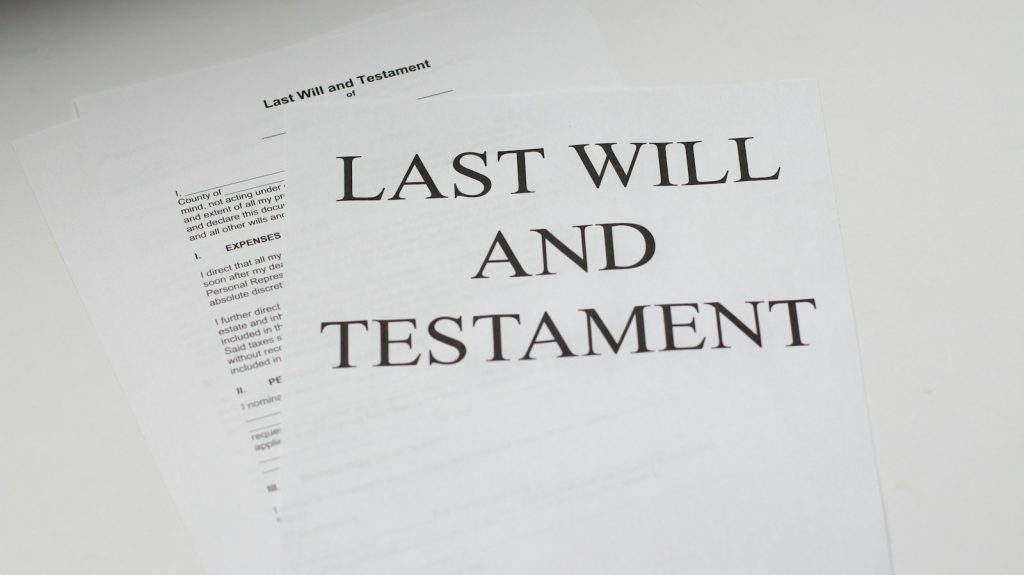WHY EVERY LANDLORD IN NIGERIA NEEDS A PROPER TENANCY AGREEMENT

Although rewarding, renting out property in Nigeria can quickly turn into a legal nightmare in the absence of a proper tenancy agreement. Many landlords depend on oral agreements or generic templates downloaded from the Internet, only to face disputes, unpaid rent, or refusal of the tenants to vacate the property. A tenancy agreement is more […]
HOW TO VOLUNTARILY WIND UP A COMPANY IN NIGERIA

In Nigeria, a company can be wound up voluntarily by resolution of its shareholders or compulsorily by an order of court. Voluntary winding up of a company involves the resolution of all its affairs and legal dissolution of the company as a corporate entity. This article addresses voluntary winding up in line with procedures, duties […]
SOLE CUSTODY OF A CHILD IN NIGERIA

The notion of sole custody is indispensable for parents who want to make decisions concerning their child’s welfare without involving another parent. In the case of sole custody, one is granted the exclusive legal and physical rights over the child by the court. This article examines the applicable law and processes involved in the grant […]
REGULATORY COMPLIANCE FOR STARTUPS IN NIGERIA

Nigeria boasts one of Africa’s most vibrant startup ecosystems, drawing significant attention from both local and global investors. However, for emerging businesses, understanding and adhering to the country’s regulatory framework can be complex. Many startups, especially those unfamiliar with industry-specific requirements, struggle to navigate these legal obligations. While compliance may just sound like a legal […]
ESSENTIAL GUIDE FOR FOREIGN INVESTORS: HOW TO REPATRIATE CAPITAL AND PROFITS IN NIGERIA SUCCESSFULLY
Generally, repatriation is a term referring to the return of people, assets, or cultural artifacts to their country of origin. In finance, repatriation involves the conversion of foreign-earned income into the home country’s currency. It would, therefore, represent the instance when a business or an individual is returning money back to the home country, which […]
LEGAL PROCESS FOR CHILD ADOPTION IN NIGERIA

Adoption allows children who will not be raised by their biological parents to legally become part of another family, while maintaining their genetic and emotional ties to their original parents. While some view having children as a divine mandate, others either cannot conceive due to biological reasons or personal choice, making adoption a viable option. […]
NIGERIAN MUSIC COPYRIGHT LAWS:BALANCING ARTISTS RIGHTS WITH DIGITAL STREAMING SERVICES

The Nigerian music industry has witnessed significant growth, driven largely by digital technology. This expansion, while advantageous, has introduced complex legal challenges, particularly in the realm of copyright protection for artists and record labels. The digital format’s ease of replication, manipulation, reproduction, and dissemination complicates the enforcement of copyright laws. As digital streaming services become […]
LEGAL DUE DILIGENCE PROCEDURES IN NIGERIA

Legal due diligence in Nigeria involves thoroughly reviewing, investigating, and evaluating all legal risks associated with a target company before finalizing a business transaction, investment, or purchase of real estate. This due diligence process includes searching relevant locations, documents, and interviewing employees to uncover any liabilities related to the deal. Conducting comprehensive due diligence […]
FOREIGN BUSINESS OWNERS MUST OBTAIN SPECIFIC PERMITS AND QOUTAS FROM NIGERIA’S MINISTRY OF INTERIOR. THIS POST COVERS EVERYTHING YOU NEED TO KNOW

To operate seamlessly in Nigeria, foreign-owned companies must obtain business permits and other required licenses. Foreigners seeking to work as employees or control companies in Nigeria must also get expatriate quotas through those companies. The Federal Ministry of Interior in Nigeria controls foreign business activity and immigration by issuing permits that determine the number of […]
PROCEDURE FOR WRITING A WILL IN NIGERIA

When writing a will in Nigeria, there are important legal requirements to consider regarding how a deceased person’s estate will be handled. The person making the will, known as the testator, can use the document to control their assets after death, protect loved ones’ interests, express final wishes, prevent disputes between heirs, and avoid issues […]
